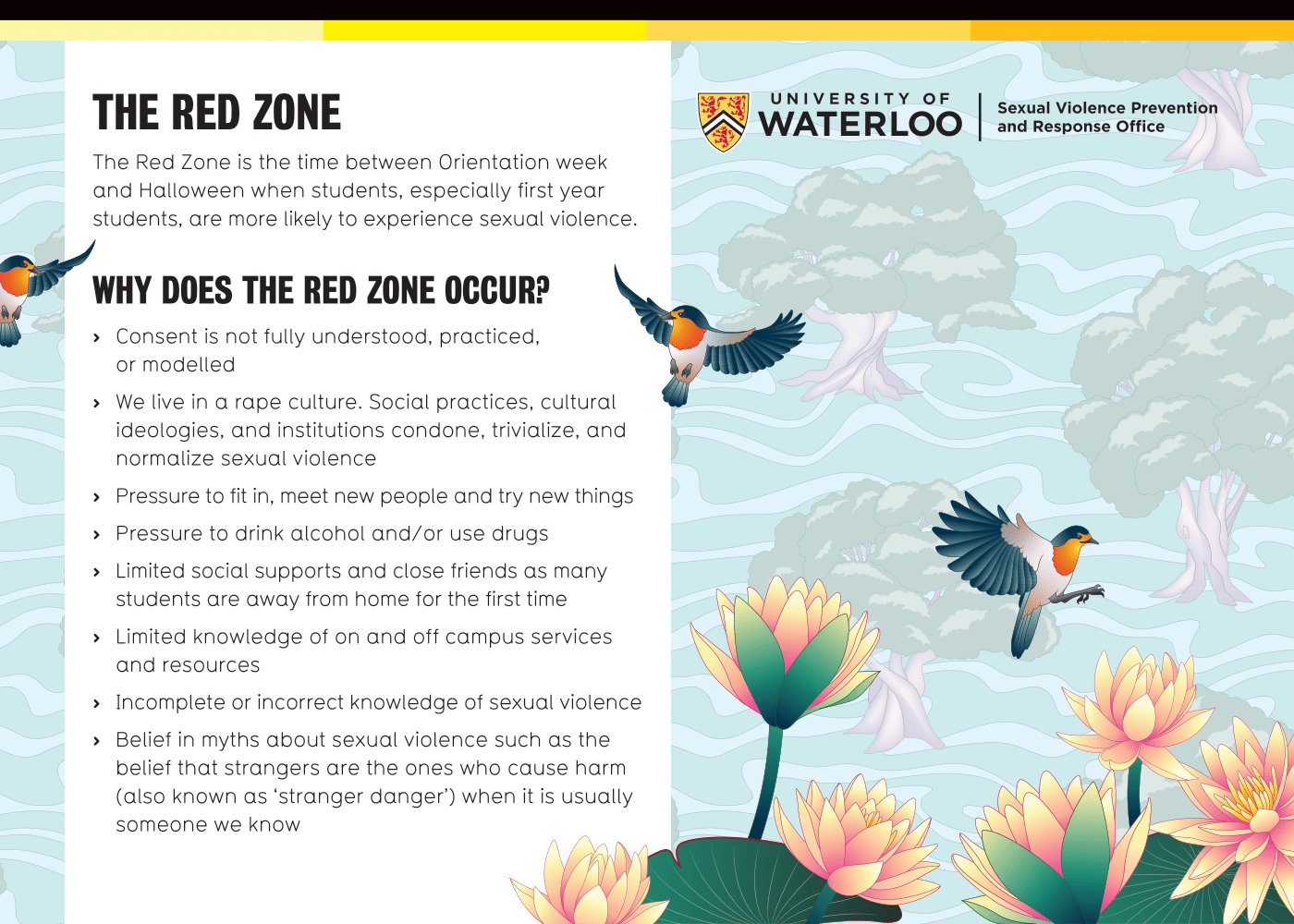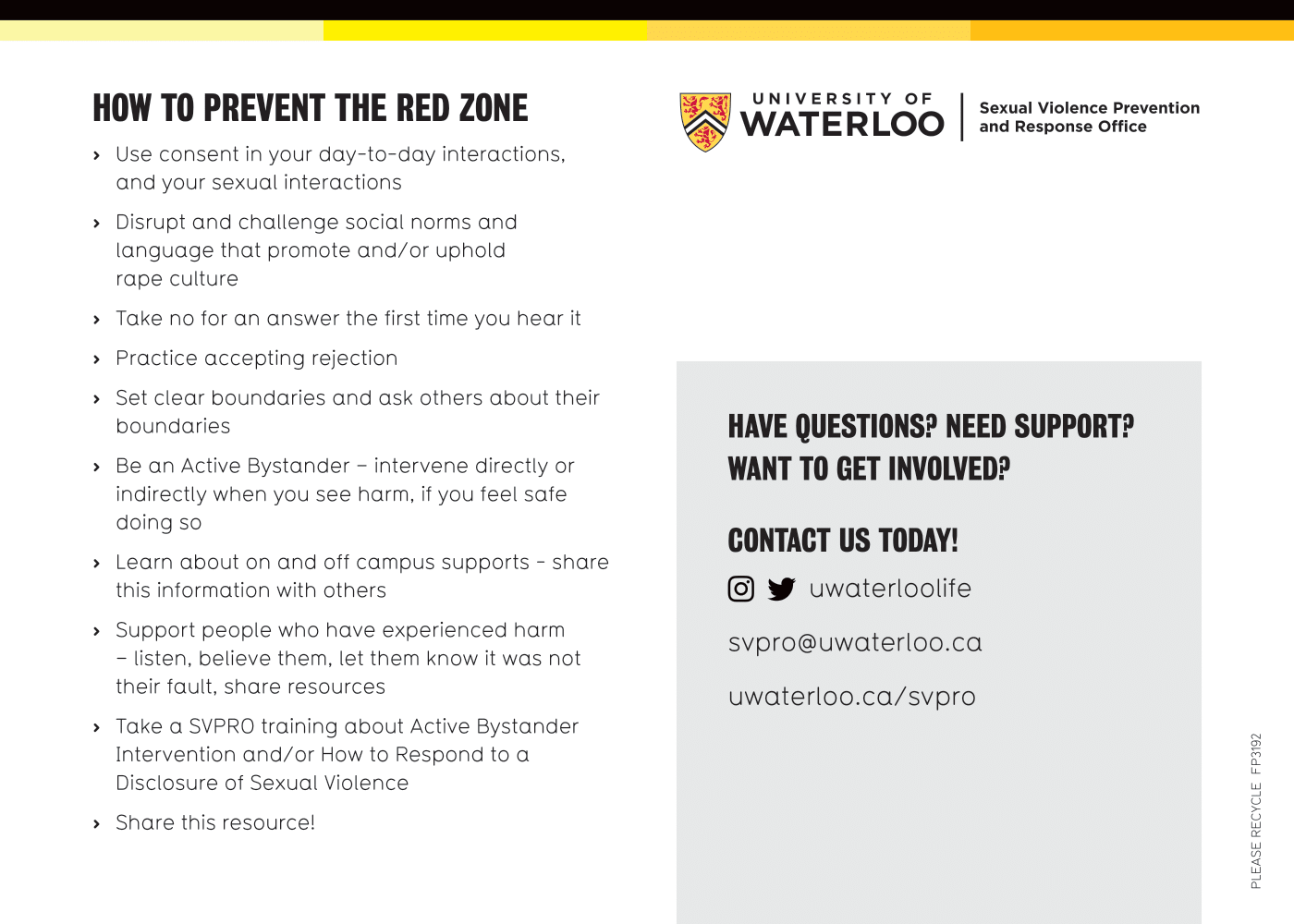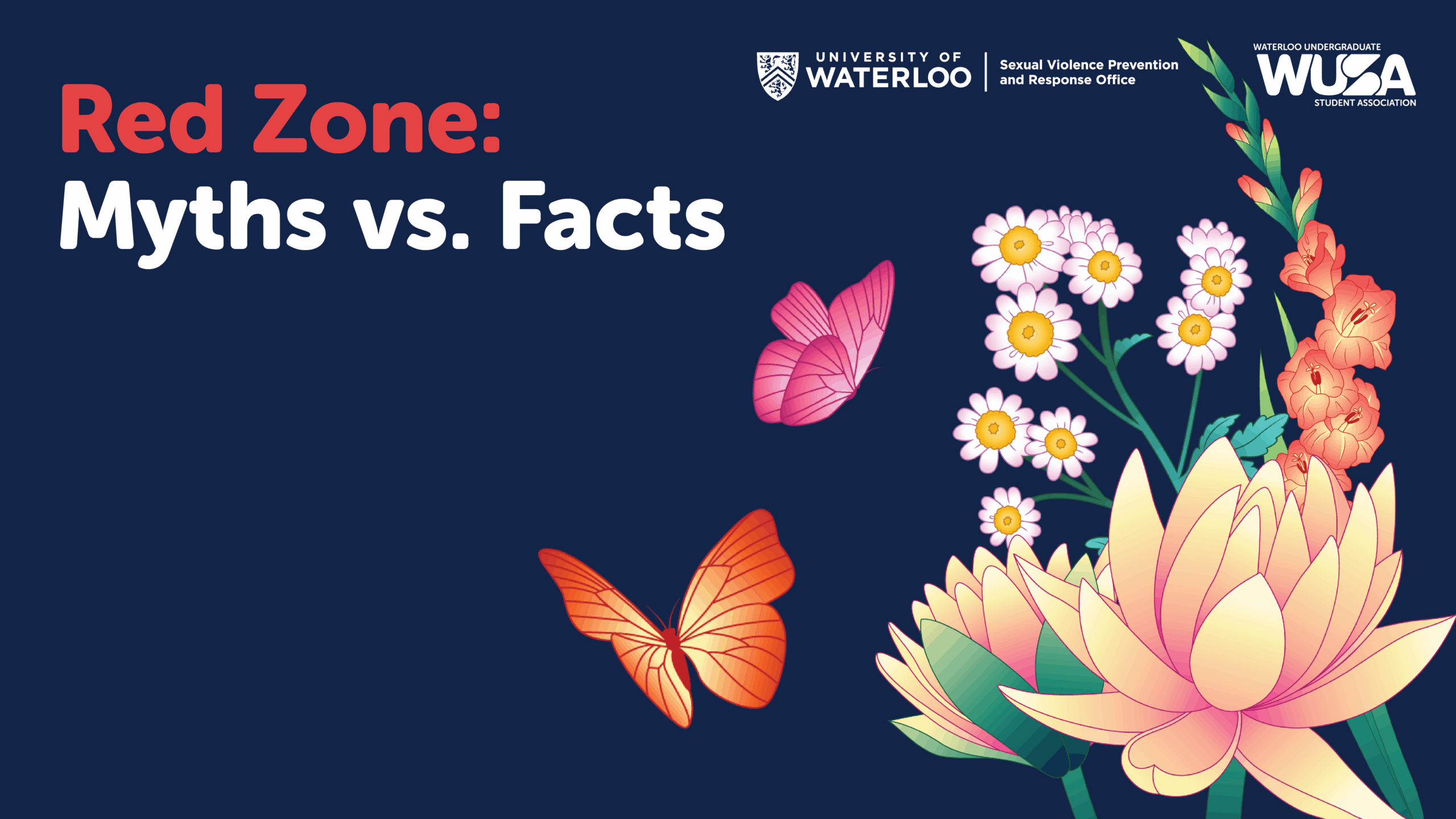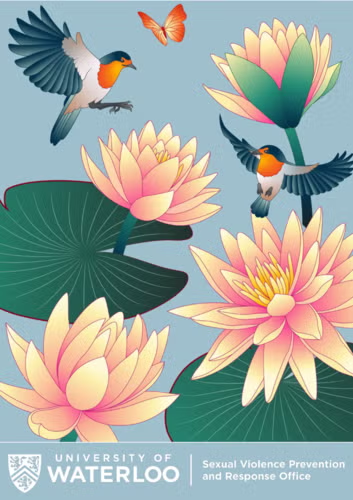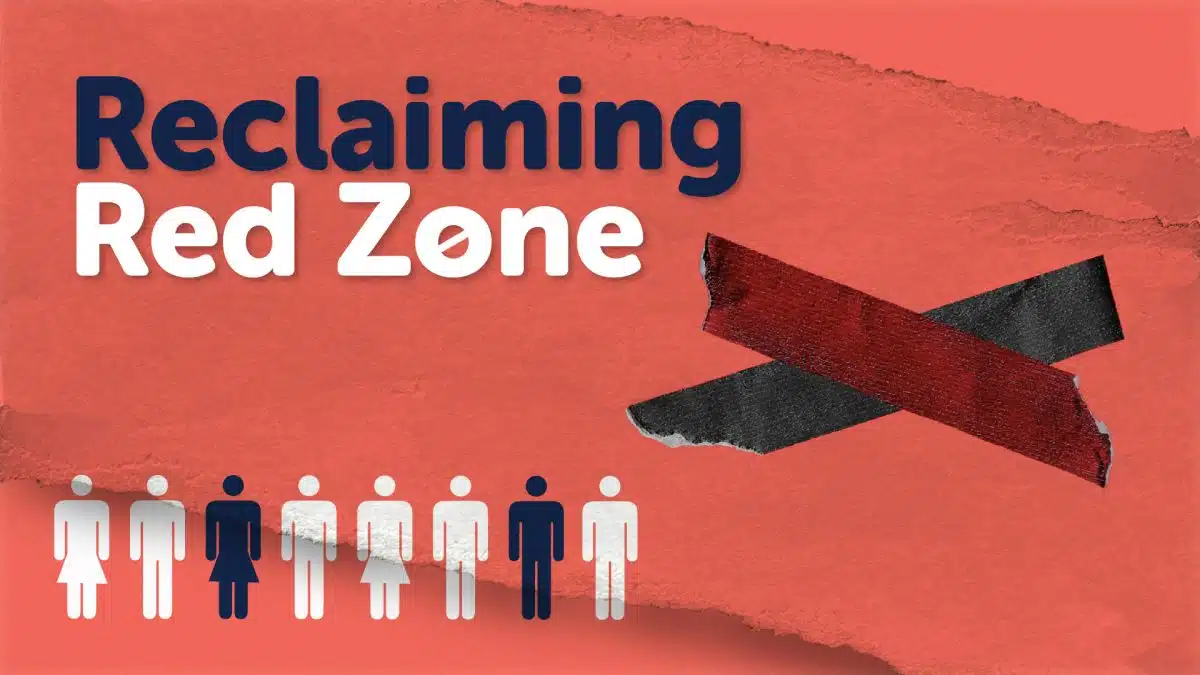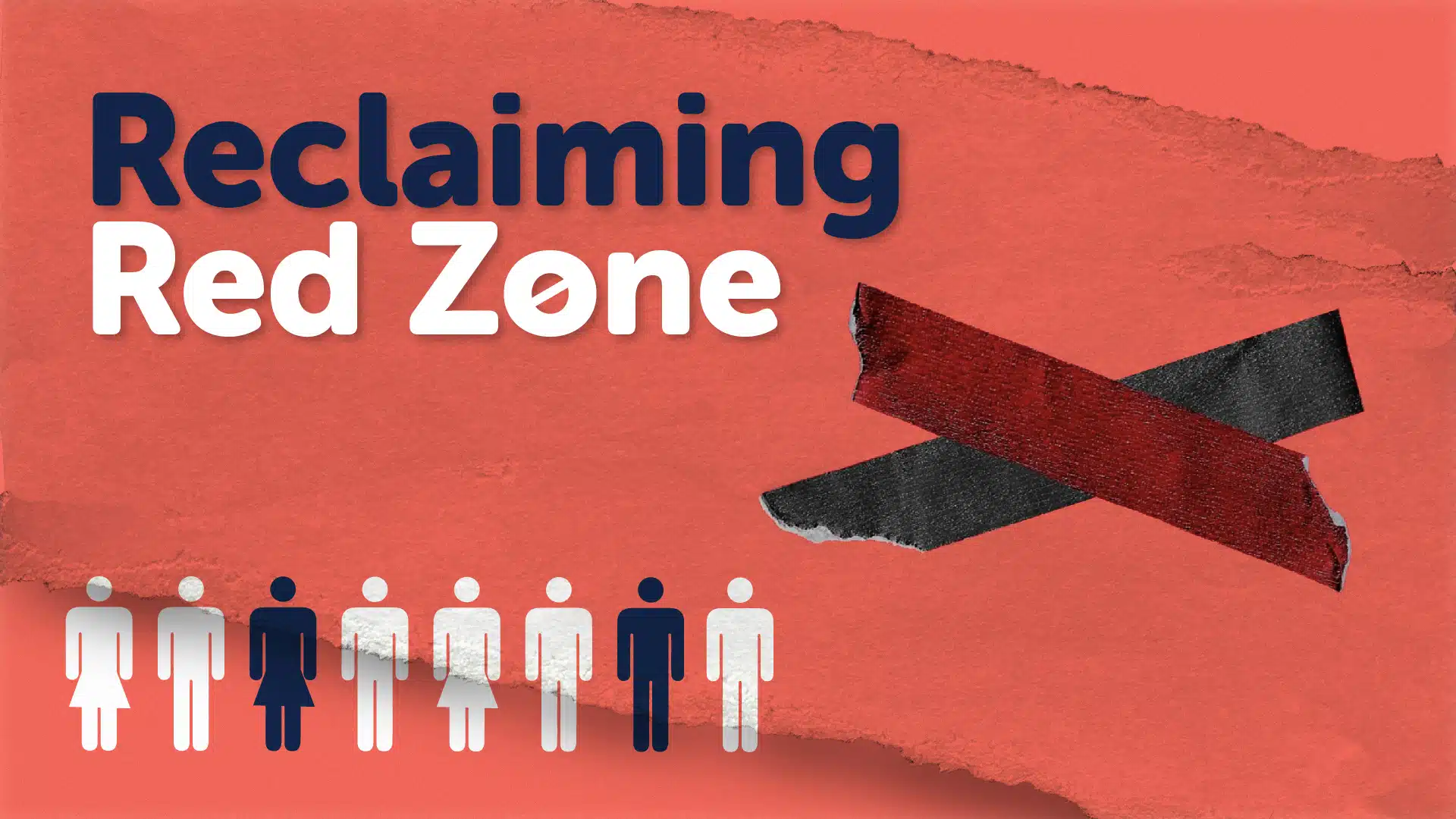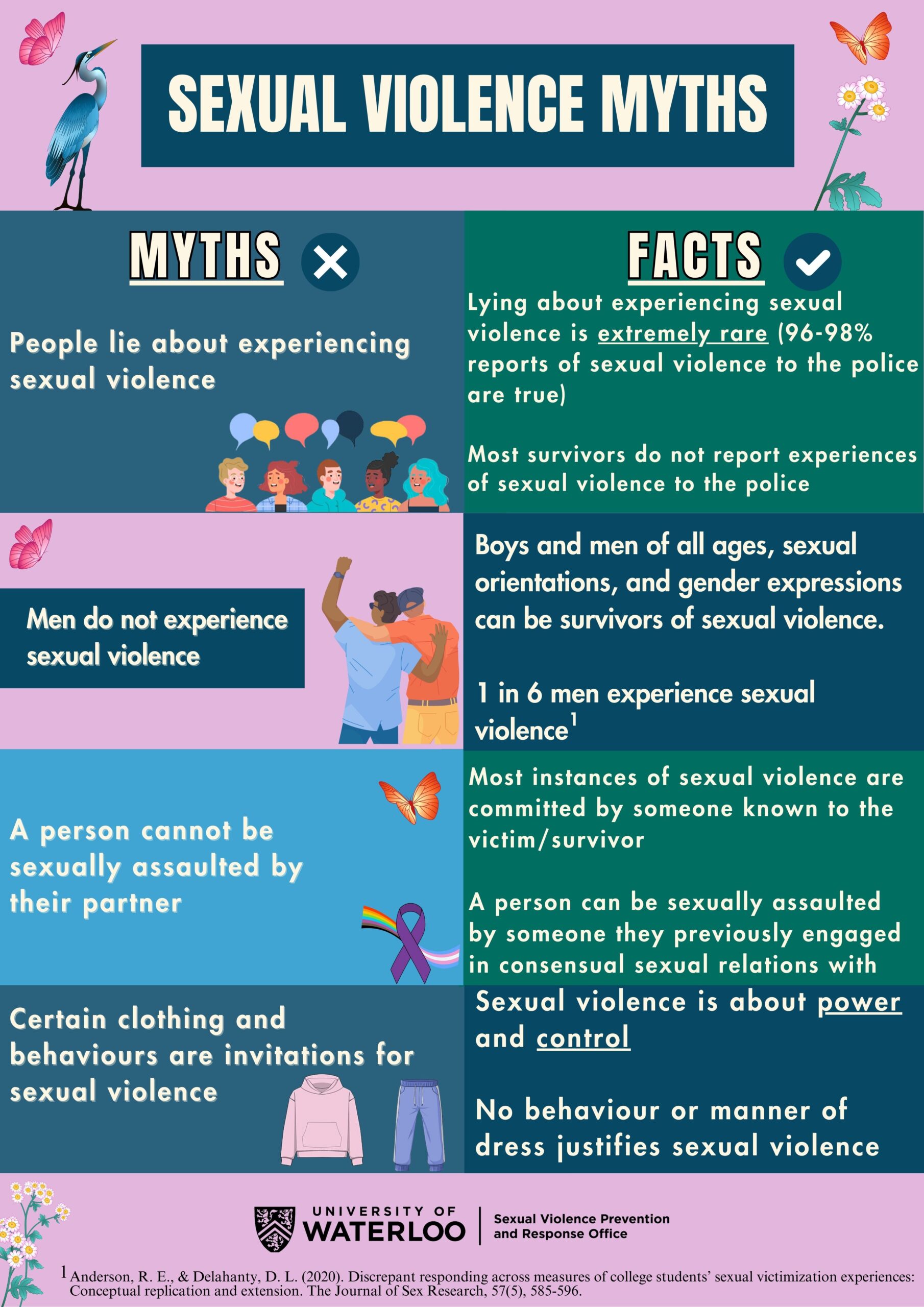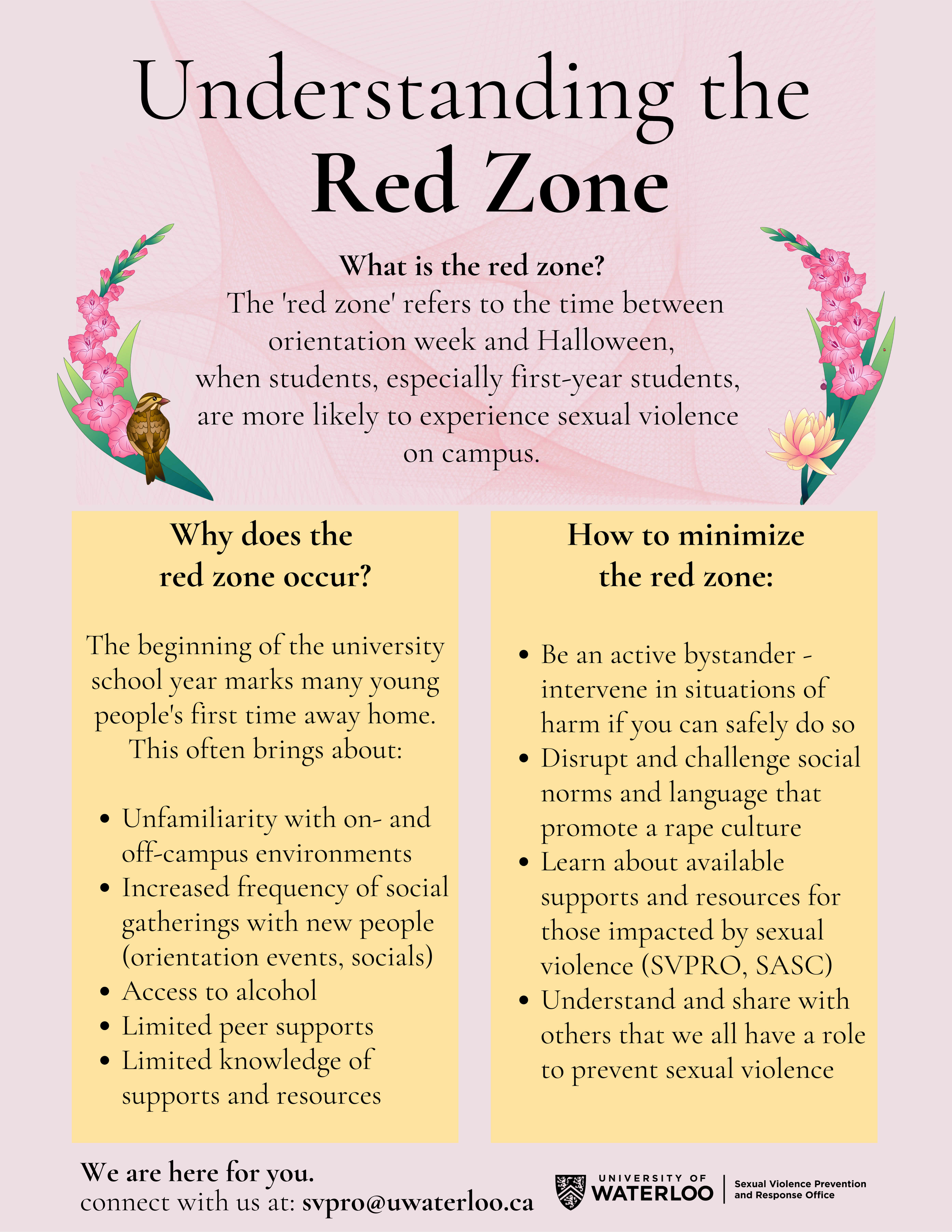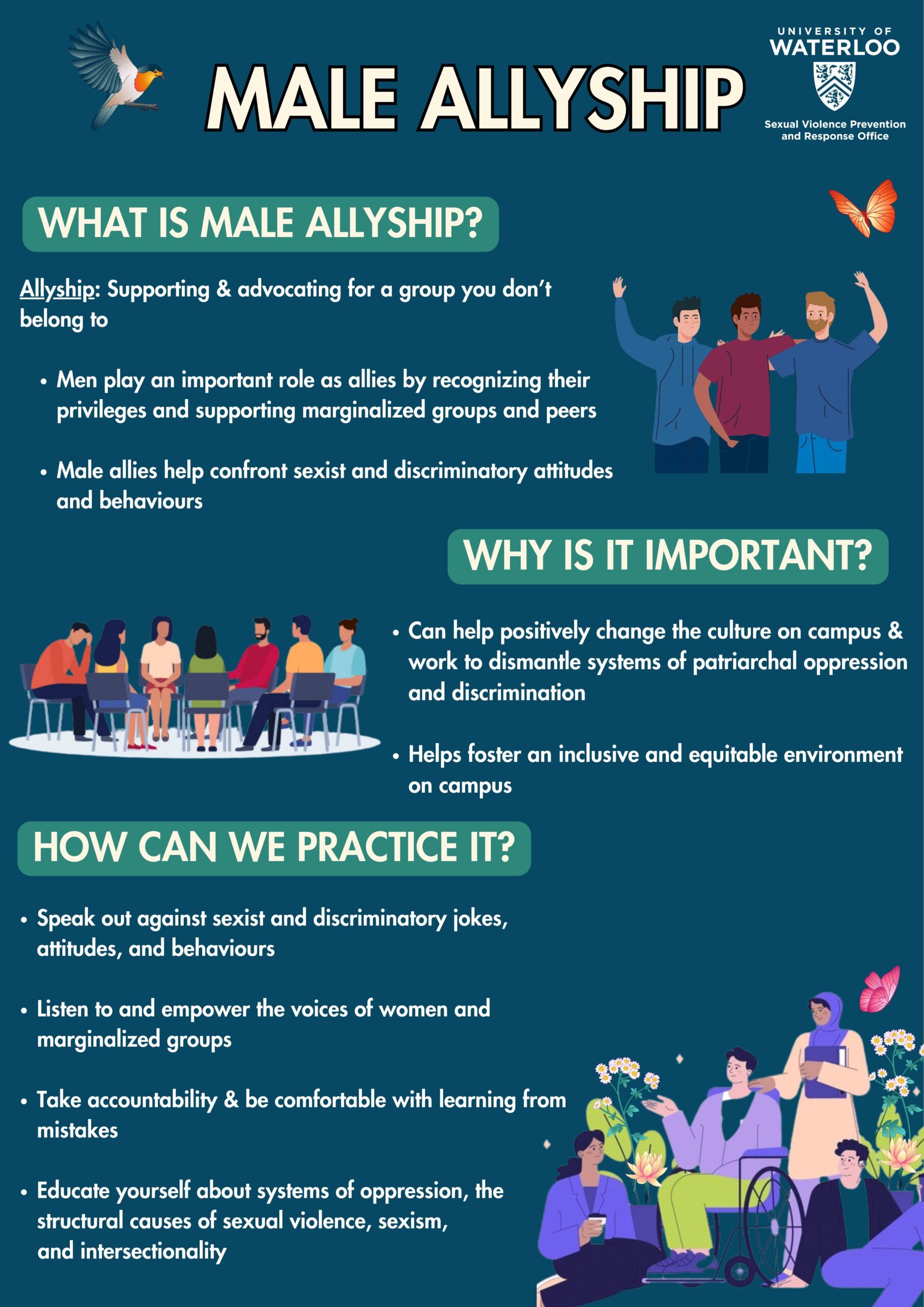What is the Red Zone?
The “Red Zone” refers to the first six to eight weeks of the academic year on university campuses, during which students, particularly first-year students, are at a heightened risk of experiencing sexual assault or other forms of gender-based violence. This period is marked by increased social activities, such as parties and orientation events, which can lead to environments where these risks are elevated. The concept emphasizes the importance of awareness, prevention, and support during this vulnerable time.
Why Does it Matter?
For more insights on student safety, view our RSP Report.
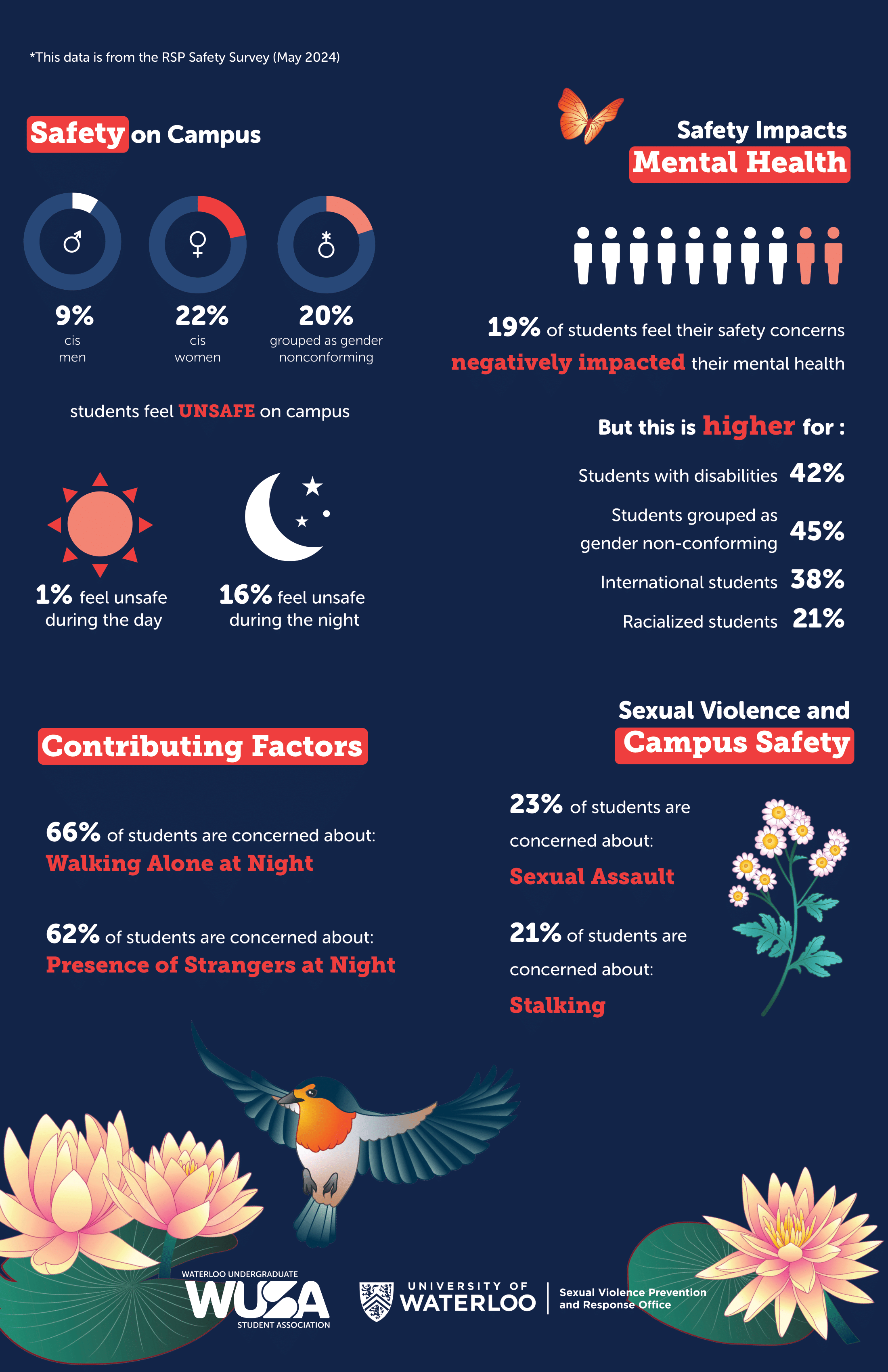
View the PDF.
How You Can Make a Difference
One of the most powerful ways to make a difference is by educating yourself and others about consent. Understanding consent is key to being an ally and contributing to a safe and respectful campus environment. Take our consent quiz to test your knowledge and learn how you can help create a community where everyone feels safe and valued.
Know Your Resources
You are not alone.
Whether you’re seeking support or want to learn how to help prevent sexual violence, the resources we’ve compiled are here to guide and empower you.

